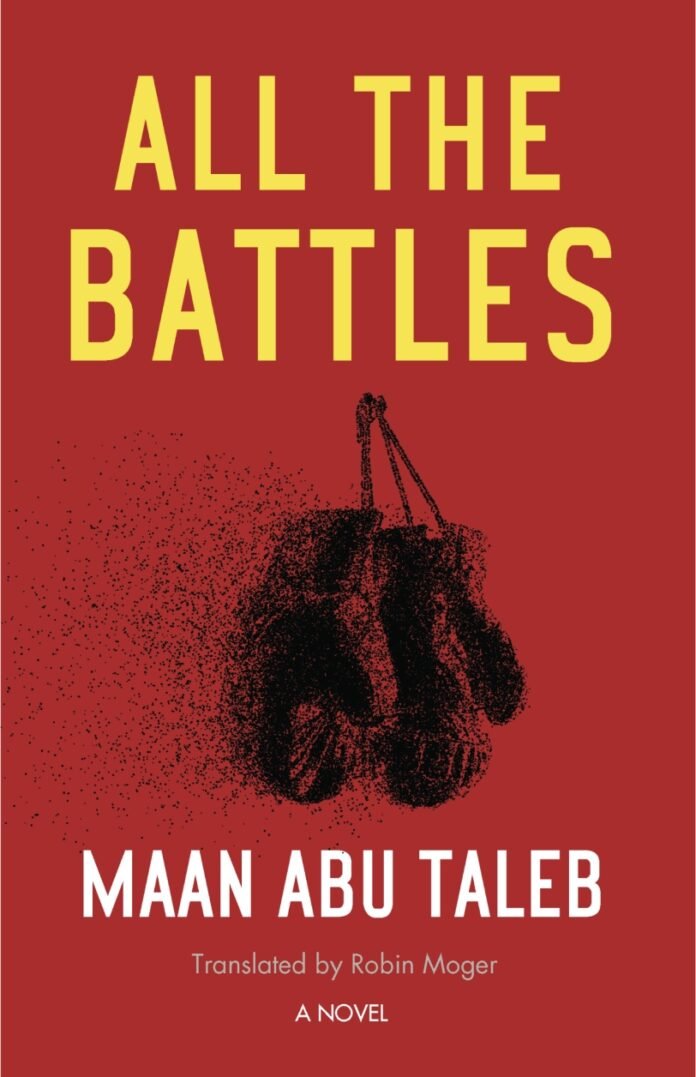Saed leads a comfortable, yet boring, middle-class life. That is, until one afternoon, he leaves work early and crosses into the rough side of town, in search of a run-down boxing club. His obsession with this underground sport grows: he starts skipping work and showing up with visible injuries. Things begin to unravel as he quits his job, trains full time, and is entered for the fight of his life. Will this be the making of him, or is it the end of the road? Maan Abu Taleb’s stylish debut novel is beautifully observed and carefully paced; far from being a celebration of machismo, All the Battles approaches the pervasive presence of violence in society with nuance and grace.
Read an exclusive extract from Chapter 18 below…
The captain yelled into Saed’s ear, urging him to push harder, be stronger, faster, and more resilient. Saed gave it his all, and gradually, the captain’s voice faded from his consciousness.
Lifted further off the ground by the captain, Saed summoned more energy, despite feeling his limbs growing numb, akin to a fan spinning after being unplugged. Determined, he continued, battling with his pride as he endured the pain.
With each push from the floor, he questioned whether he would quit, with the captain’s voice and his body’s protests echoing around him. Aware of Saed’s internal struggle, the captain alternated between encouragement and threats. Saed persisted, fighting against his own body’s limitations, nausea, and exhaustion.
Each three-minute interval of exercise followed by a minute of rest became his only sense of time until the end of the fight. Saed knew he must exert himself to the fullest during these intervals in the ten-round bout, despite never having fought beyond five rounds before. As the rounds progressed, he felt increasingly distant from familiarity, unsure of what lay ahead or how he would respond.
Some boxers aimed to wear down their opponents by extending fights into later rounds, counting on fatigue to dull their resistance. Unlike Bilhajj, who had won fights in later rounds, Saed broke before the session’s end, overwhelmed by pain and exhaustion. Despite the captain’s insistence, Saed struggled to continue, eventually giving in when the time was up.
After the morning session, Saed would consume a protein shake with fruit before joining the captain for lunch at a nearby restaurant, where they were provided with rice or pasta with vegetables six days a week until their departure for Dubai. They would eat their meal while observing the bustling activity of the nearby street.


